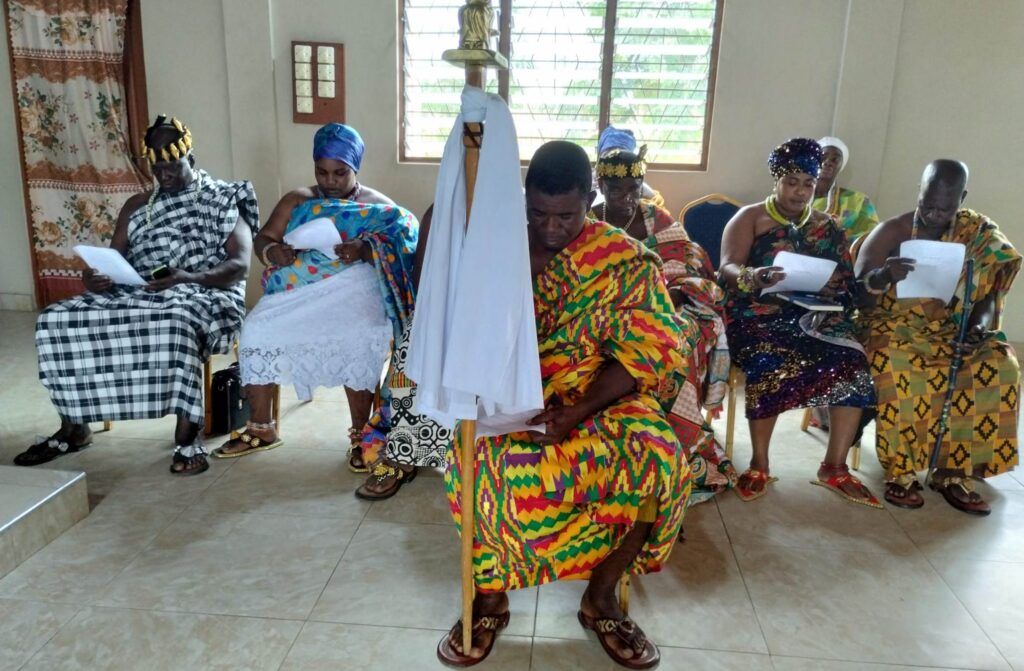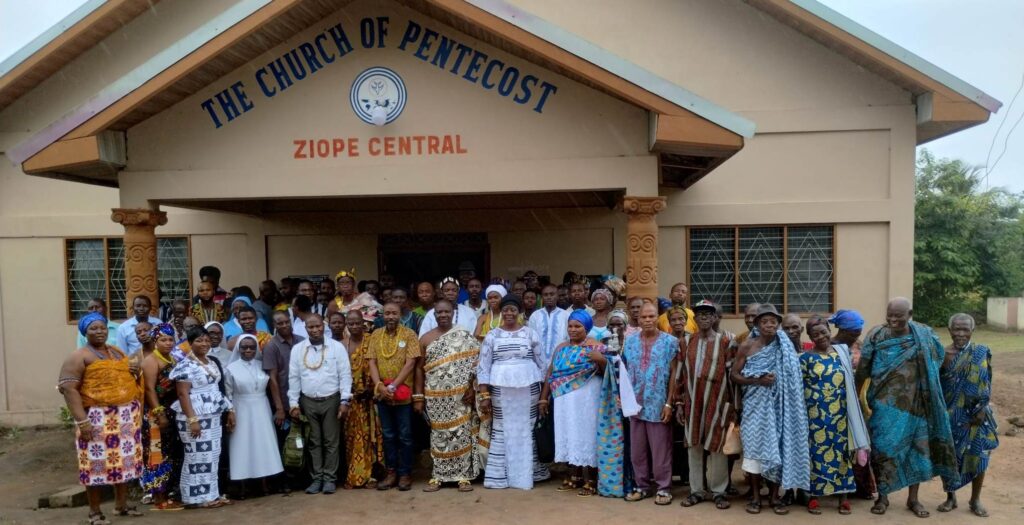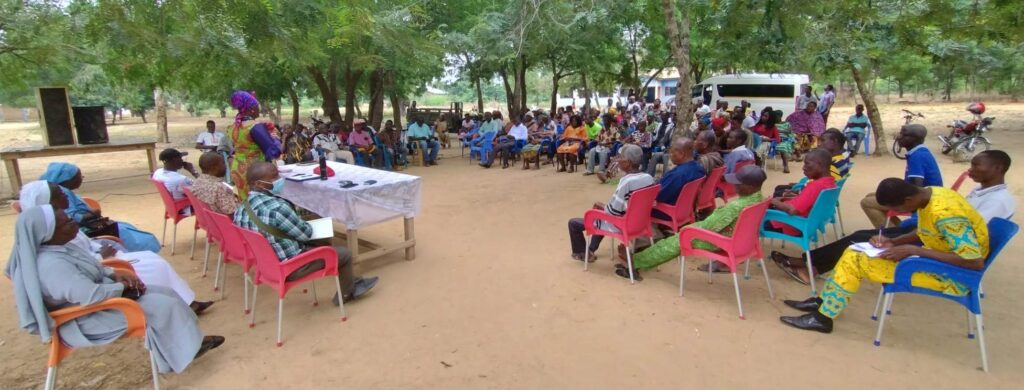
In Ghana, communities are taking proactive steps to protect their lands from foreign investors. On July 21, 2024, a significant meeting was held in Ziope, gathering 75 chiefs representing the 110 communities of the Ziope Traditional Area. This was the largest meeting of its kind among traditional leaders since AFJN started its land grabbing awareness campaign in Ghana. The meeting aimed to educate participants about land grabbing, its consequences, and how to safeguard their lands for future generations. The chiefs were encouraged to take proactive measures to avoid falling victim to the growing threat of agro-colonialism by foreign agribusinesses, a trend increasingly impacting countries across Africa, including Ghana. Under the leadership of Togbega Lawluvi Bimah IV, the paramount chief of the Ziope Traditional Area, the community discussed strategies to protect their vast, fertile, and resource-rich lands from exploitative foreign investors. The gathering highlighted the importance of job creation and community development while steering clear of predatory and poorly regulated investments.

One key outcome of the meeting was the confirmation that no predatory investor ( often disguised as foreign investors) has successfully acquired land in Ziope. This presents an opportunity for the community to raise awareness about the threat of land grabbing. Additionally, the paramount chief announced the formation of a committee to oversee foreign investments and evaluate their quality and intent. This proactive approach marks a significant step toward protecting community interests while fostering responsible economic partnerships. The committee also aims to tackle challenges like the leasing of land to Fulani herdsmen, whose cattle have been accused of damaging crops and threatening the peace.
Discussions in Ziope also highlighted environmental concerns. Chiefs expressed interest in transitioning from chemical fertilizers to organic alternatives. Organic farming, as practiced at the renowned Songhai Center in Benin, offers a healthier and more sustainable agricultural practice among rural populations, and helps preserve biodiversity by allowing native plants and animals to thrive. A visit to Songhai Center was suggested to further explore these possibilities.

In Agodormi, a similar awareness event that attracted more than 150 community members from nine villages was held. Some community members had already signed leases to foreign investors, while others were considering offers, highlighting the community’s vulnerability to land grabbing. Many sought guidance on how to reverse these agreements. The Agbavor brothers, for instance, were cautious of an investor’s promise to build infrastructure including an airport, a stadium, a supermarket and create jobs on their approximately 2,000 acres. AFJN determined that these promises were likely too good to be true, viewing them as a strategy to gain control of the land without ever delivering on the commitments—something that has occurred repeatedly in other parts of Ghana. After hearing the message of caution, the Agbavor brothers committed to educating their families and thoroughly vetting any future deal offers.
These events showcased the importance of land grabbing awareness and community empowerment. With approximately 8% of Ghana’s arable land already in foreign hands, the stakes are high. As highlighted by attendees, small-scale farmers like Togbe Ago IV, who champion regenerative farming practices that preserve land, water, and offer sustainable solutions to food security and environmental challenges.
This awareness campaign exemplifies proactive prevention, encouraging communities to remain vigilant, safeguard their resources, and embrace sustainable agricultural practices. By empowering local farmers and fostering responsible investment, communities like Ziokpe and Agodormi can secure a prosperous and self-reliant future.
